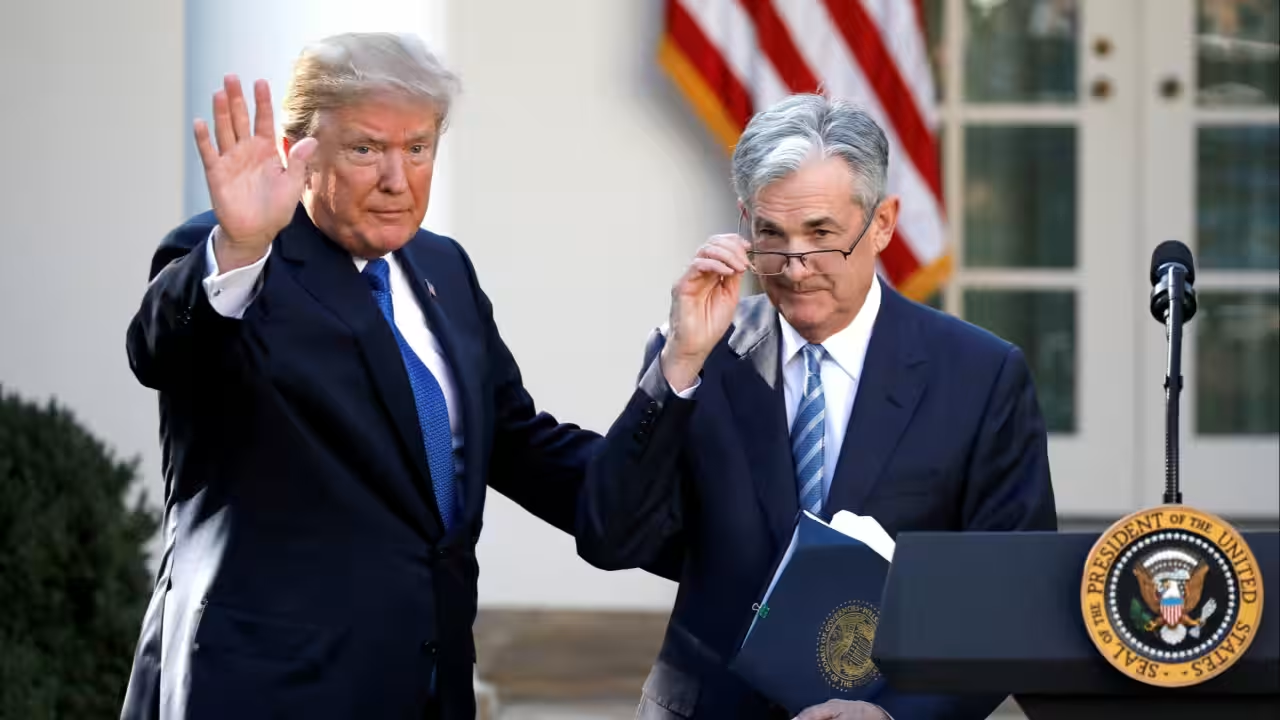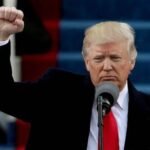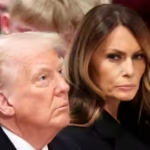The Magnificent Seven in Trumpland: Key Figures Who Defined Trump’s Presidency

Donald Trump’s presidency was a transformative period in American politics, marked by sweeping changes, fiery debates, and a team of individuals who became central to advancing his vision for the United States. Among these figures, a group informally referred to as “The Magnificent Seven” emerged as pivotal players in crafting and executing Trump’s America First agenda. This group, drawn from diverse professional and ideological backgrounds, helped shape the direction of the Trump administration and left an enduring impact on the nation’s political landscape.
Steve Bannon was one of the earliest and most influential figures in the Trump administration. As Chief Strategist, Bannon’s role in steering Trump’s populist and nationalist message was undeniable. A former executive chairman of Breitbart News, Bannon brought a disruptive approach to Washington politics, aiming to upend traditional power structures and recalibrate the Republican Party toward a more populist identity. His emphasis on economic nationalism, immigration reform, and trade protectionism resonated deeply with Trump’s base. However, his tenure was short-lived, as his confrontational style and divisive rhetoric sparked controversy both within and outside the administration.
Jared Kushner, Trump’s senior advisor and son-in-law, was another key player whose influence extended across multiple policy areas. Despite lacking prior political experience, Kushner became one of the administration’s most trusted confidants, managing critical initiatives like the Abraham Accords, which normalized relations between Israel and several Arab nations. Kushner also played a prominent role in the administration’s criminal justice reform efforts, spearheading the bipartisan First Step Act, which sought to address sentencing disparities and promote rehabilitation. Additionally, he oversaw aspects of the White House’s COVID-19 response, though his involvement drew mixed reviews from experts and critics alike.
On the international stage, Mike Pompeo, Trump’s Secretary of State, was instrumental in shaping US foreign policy. A staunch advocate of Trump’s “America First” doctrine, Pompeo’s tenure was defined by hardline positions on adversaries such as China, Iran, and Venezuela. He played a critical role in facilitating historic peace talks with North Korea, though the results of these negotiations remained inconclusive. Pompeo also oversaw the controversial US withdrawal from the Iran nuclear deal and the implementation of sweeping sanctions, positioning the Trump administration as a forceful opponent of Iran’s regional ambitions. His unapologetic approach earned him both praise and criticism, but there is no denying his influence on America’s global posture.
Domestically, Wilbur Ross, the Commerce Secretary, was a key architect of Trump’s trade policy. Tasked with addressing trade deficits and protecting American industries, Ross led efforts to renegotiate trade agreements, including the landmark USMCA deal that replaced NAFTA. He also played a central role in the administration’s tariff strategy, targeting China and other countries deemed to have unfair trade practices. While these measures were celebrated by some as necessary to safeguard American jobs, others criticized them for escalating trade tensions and harming global markets.
In the realm of communication, Sarah Huckabee Sanders became the face of the Trump administration during her time as Press Secretary. Known for her no-nonsense approach and unwavering defense of the president’s policies, Sanders regularly sparred with journalists during contentious press briefings. Her ability to maintain composure under intense scrutiny earned her admiration from Trump’s supporters, even as critics accused her of undermining media transparency. Her tenure highlighted the administration’s combative relationship with the press, reflecting Trump’s broader narrative of challenging the “fake news” establishment.
Kellyanne Conway, counselor to the president, was a trailblazing figure in Trump’s orbit. As the first woman to successfully manage a presidential campaign, Conway brought her sharp political instincts and communications expertise to the White House. She was a consistent advocate for Trump’s policies, appearing frequently on television to defend the administration’s positions and counter criticism. Conway’s focus on connecting with suburban voters and crafting targeted messaging played a crucial role in maintaining the administration’s appeal among key demographics. Her phrase “alternative facts” became a cultural touchpoint, symbolizing the contentious nature of political discourse during the Trump years.
Finally, Mitch McConnell, the Senate Majority Leader, emerged as an indispensable ally in advancing Trump’s legislative and judicial priorities. While not an official member of the administration, McConnell’s role in securing the confirmation of Trump’s judicial appointments, including three Supreme Court justices, cannot be overstated. His strategic leadership in the Senate ensured the passage of key tax reform legislation and the preservation of Trump’s policy agenda, even in the face of fierce opposition from Democrats. McConnell’s partnership with Trump, though occasionally strained, was instrumental in shaping the conservative legacy of the administration.
Together, “The Magnificent Seven” exemplified the bold, unconventional, and often polarizing nature of Trump’s presidency. They worked tirelessly to implement policies that challenged the status quo, reshaped America’s political landscape, and solidified Trump’s influence within the Republican Party. Yet their efforts were not without controversy. Critics argued that their actions deepened political divisions and prioritized loyalty to Trump over bipartisanship or long-term stability. Supporters, however, viewed them as champions of a movement that sought to return power to the people and prioritize American interests above all else.
As the Trump era continues to be dissected and debated, the contributions of these seven individuals will remain a focal point for understanding the administration’s successes, challenges, and legacy. Their influence extended far beyond the confines of the White House, leaving an indelible mark on the nation’s history.
For more comprehensive analysis, expert insights, and engaging news coverage on politics, innovation, and leadership, sign up today at www.innovationtimes.com and stay informed about the people and ideas shaping our world.










